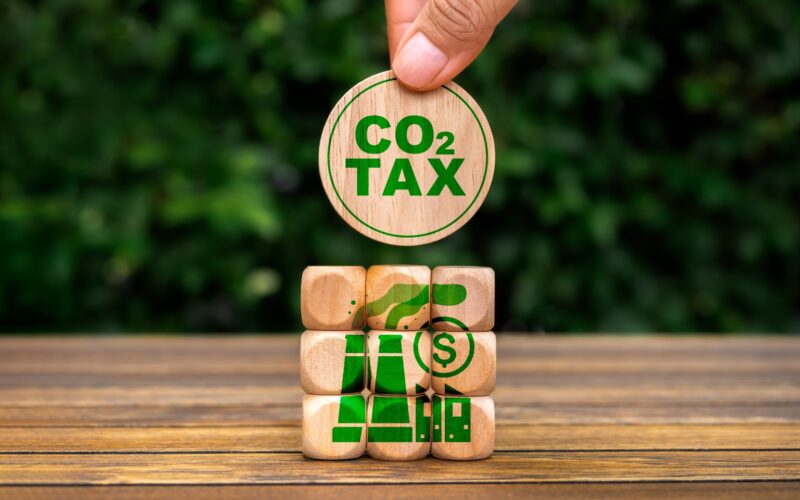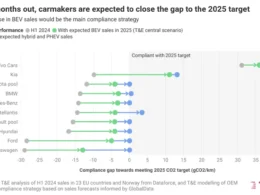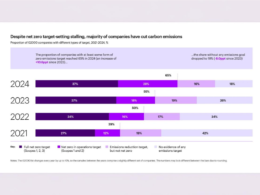At least 37% of companies in Singapore reported experiencing only “minimal impact” from the recent increase in carbon tax according to a survey by the Sustainable Energy Association of Singapore (Seas).
A smaller segment (24.5%) indicated that the carbon tax hike, which took effect in January, prompted them to reassess their long-term sustainability strategies. Nearly 20% of these companies have since intensified their efforts to cut emissions and invest in energy-efficient technologies.
The survey, which included responses from 250 industry professionals primarily within Southeast Asia’s energy sector, also revealed that only a small fraction (3.8 percent) of companies purchased carbon credits. This suggests that the tax increase alone may not be sufficient to drive substantial demand for carbon credits.
Singapore’s carbon tax rate rose from S$5 per tonne of carbon dioxide equivalent to S$25 per tonne on 1st of January and is set to increase further to S$45 per tonne in 2026 and 2027. Plans are also in place for the rate to reach between S$50 and S$80 by 2030.
Ravi Menon, former managing director of the Monetary Authority of Singapore, has previously advocated for a higher carbon tax to expedite climate action and address global warming.
Overall, only 24.5% of survey respondents considered Singapore’s carbon tax regime effective, while 41.9% found it moderately effective. A mere 6 percent deemed it very effective, indicating that while the tax is having an impact, further refinements and assessments are needed to enhance its effectiveness, according to Seas.
The survey also examined perceptions of the energy transition pace in Singapore and the broader ASEAN region. Although a significant number of respondents (45.9%) felt Singapore’s progress was satisfactory, around 32.5% believed more improvements were necessary. Only 17% rated Singapore’s progress as “very satisfactory,” suggesting that despite recognising the progress made, considerable work remains to achieve the net-zero-by-2050 goal.
Respondents identified government policies (89.2%) and economic incentives (59.8%) as key drivers for decarbonisation, while corporate sustainability initiatives were seen as important but secondary to government-led efforts (58%).
The survey noted a rising demand for clean energy from major tech companies, likely driven by increased investments in artificial intelligence and data centres.
Regulatory challenges for Singapore include reliance on natural gas (68%), barriers in cross-border interconnection agreements (57.2%), and regulatory uncertainties in tightening energy markets (40.2%), highlighting the difficulty of balancing energy security with decarbonisation.
The main hurdles Singapore faces in its decarbonisation efforts, as indicated by the survey, include limited space for renewable energy infrastructure (85.6%), high costs and investment requirements (63%), and limited options for offsetting carbon emissions (40.7%).
A majority (67.9%) believed that a carbon trading system could effectively accelerate decarbonisation, though about 32% remained skeptical, suggesting concerns that need addressing for broader acceptance and success.






















